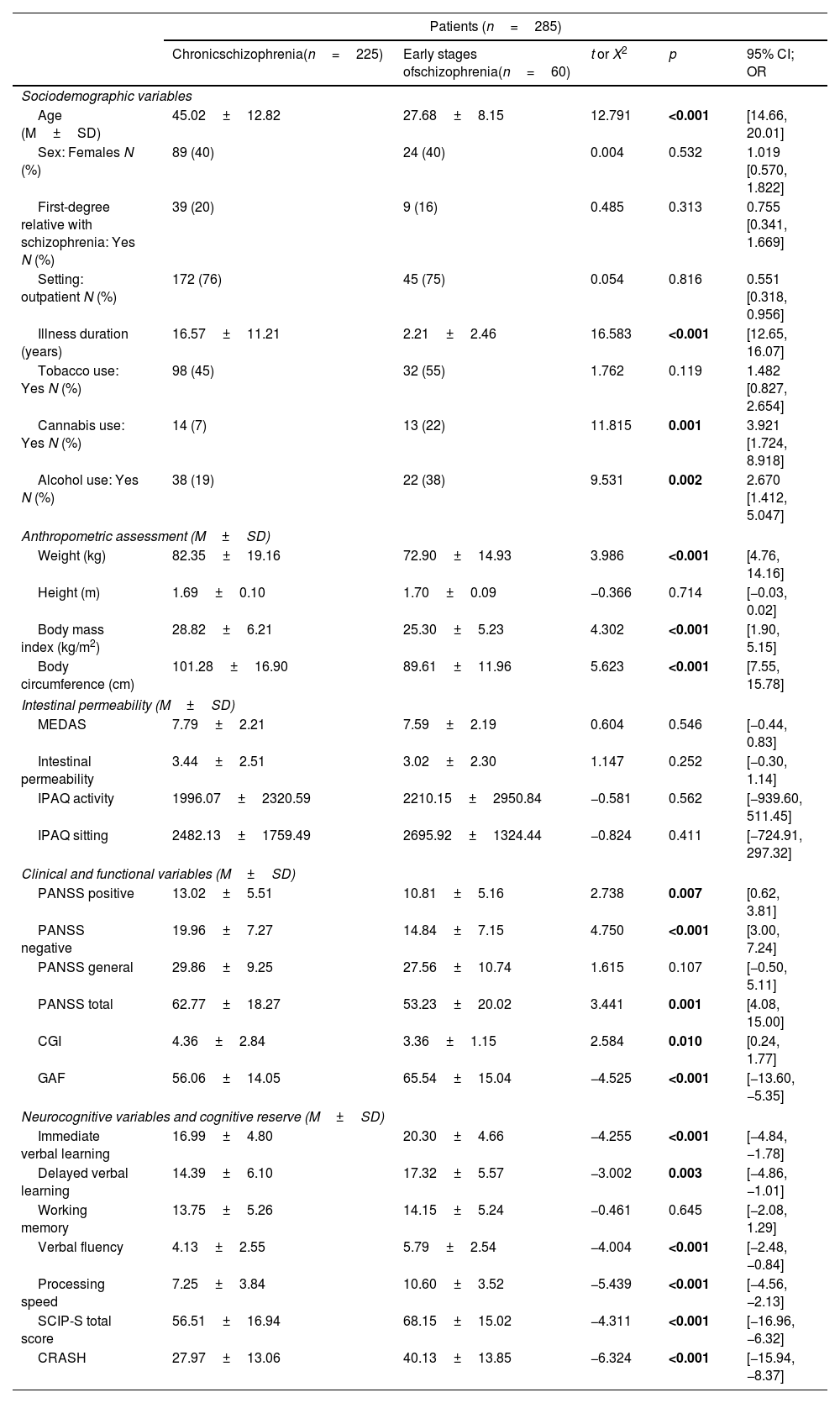Although there is evidence that higher cognitive reserve (CR) is a protective factor and it has been related to better prognosis, there have been no studies to date that have explored the CR level and its impact in clinical, neurocognitive and lifestyle outcomes according to the stage of the disease: early stage of psychosis (ESP) or chronic schizophrenia (SCZ).
Material and methodsA total of 60 patients in the ESP and 225 patients with SCZ were enrolled in the study. To test the predictive capacity of CR for each diagnostic group, a logistic regression analysis was conducted. Hierarchical linear regression analyses were performed to explore the associations between CR and different outcomes. The mediation analyses were performed according to the principles of Baron and Kenny.
ResultsPatients with SCZ showed lower CR than those in the ESP (p<0.001). CR correctly classified 79.6% of the cases (p<0.001; Exp(B)=1.062). In ESP group, CR was related to working memory (p=0.030) and negative symptoms (p=0.027). CR (t=3.925, p<0.001) and cannabis use (t=2.023, p=0.048) explained 26.7% of the variance on functioning (p=0.003). In patients with SCZ, CR predicted all cognitive domains, negative symptoms (R2=0.091, p=0.001) and functioning (R2=0.074, p=0.005). In both ESP and SCZ groups, higher CR was associated with lower body mass index and circumference. In ESP group, the effect of adherence to Mediterranean diet on functioning (p=0.037) was mediated by CR level (p=0.003).
ConclusionsThe implications of CR depend on the stage of the disease (ESP vs. SCZ), with a greater effect on neurocognition and negative symptoms in patients with chronic SCZ.











